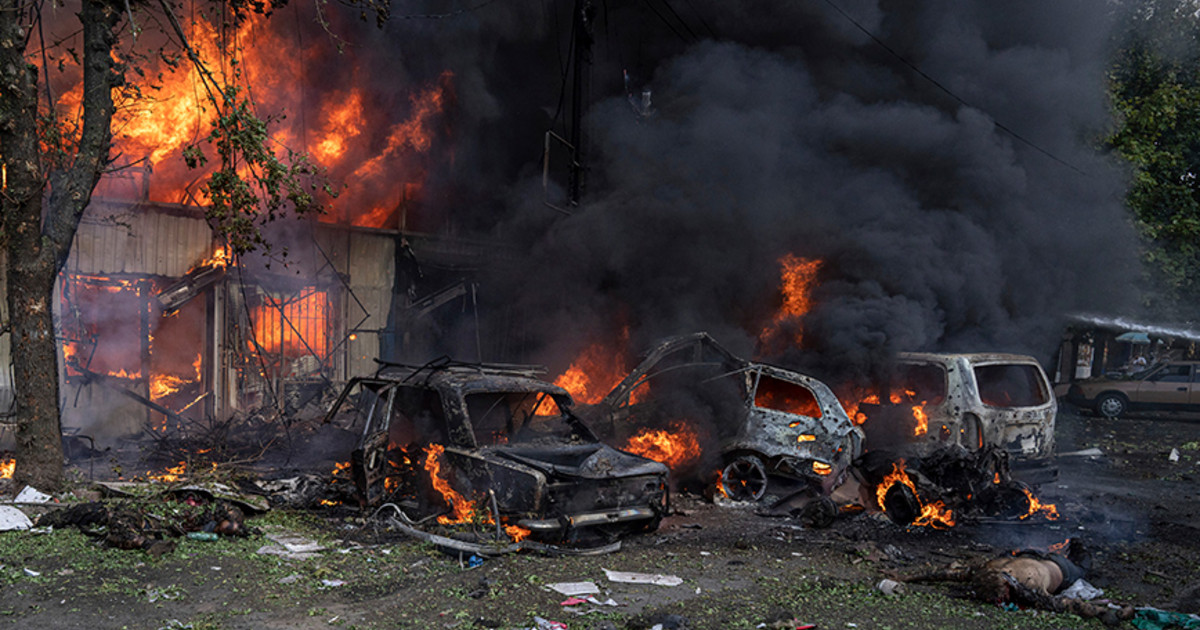A deadly cholera outbreak linked to contaminated drinking water has infected thousands of people in central Pakistan. The country is suffering from a water crisis exacerbated by the brutal heat wave in South Asia.
Temperatures in parts of Pakistan and India have reached record levels in recent weeks, putting the lives of millions at risk, in a clear sign of the effects of the climate crisis on the Asian subcontinent.
Cholera cases were first identified in Pir Koh, a remote mountain town in Balochistan province, on 17 April. Since then, more than 2,000 people have been infected and six have died, according to doctor Ahmed Baloch of the Balochistan health department.
Residents of Pir Koh say they do not have access to clean water. The lack of rain this year has caused the lakes in the region to dry up. The only source of water is a pipe that has “rusted and contaminated the water supply,” says resident Hassan Bugti.
“People are forced to drink dirty water,” he said.
Pakistani Prime Minister Shehbaz Sharif has ordered “emergency measures” to contain the cholera outbreak in Pir Koh.
The military was called in to help water trucks with drinking water reach the population and create medical facilities to treat the sick.
Cholera is an acute diarrheal disease that kills thousands of people around the world every year. It is easily transmitted by consuming food or water contaminated with the faecal bacterium Vibrio cholerae.
Scientists have warned of the severe impacts of climate change on human health, with rising temperatures helping the spread of dangerous pathogens such as cholera.
The outbreak came at a time when Pakistan is facing a severe water crisis and an earlier-arriving heat wave — which, according to the Pakistan Meteorological Department, has been persistent across the nation since the beginning of the month.
Jacobabad, one of the hottest cities in the world, in the central province of Sindh, reached 51ºC on Sunday (15) and 50ºC the day before. Average high temperatures in the city this month have been around 45ºC.
It is unlikely that the heat will subside anytime soon. While dust storms, strong winds and scattered rain have brought relief to parts of the country over the past few days, temperatures are expected to pick up again from Wednesday, according to the Pakistan Meteorological Department.
Pakistan’s Climate Change Minister Sherry Rehman said on Monday that the country was among the most water-scarce in the world and one of the ten most vulnerable to climate stress.
The country’s main dams are at “dead volume right now, and water sources are scarce as well as contested,” Rehman told CNN adding that “this is an all-encompassing existential crisis and should be taken seriously.”
In the summer of 2015, a heat wave killed more than 1,000 people in Pakistan’s largest city, Karachi.
India suffers under the heat
The heat wave was also felt by Pakistan’s neighbor India, where temperatures in the capital region of Delhi topped 49C on Sunday.
In recent months, India has experienced a severe heat wave with average maximum temperatures reaching the highest in 122 years in March (in the country) and in April (in the northwest of the country).
The stifling heat broke the 49°C mark for the first time this year in Delhi, with temperatures reaching 49.2°C at Delhi’s Muneshpur weather station and 49.1°C at Najafgarh station on Sunday, according to the Indian Meteorological Department (IMD). New Delhi suffered for 14 days in May above with heat above 40ºC.
Gurgaon, southwest of New Delhi, recorded the highest temperature since May 10, 1966, at 48.1ºC.
IMD predicts some relief for Delhi with cloudy and clear skies for the next two days. However, he predicts that high temperatures will return in some parts of the region later in the week.
In some states, the heat forced schools to close, spoiled crops and put pressure on energy sources. Authorities urged people to stay at home and stay hydrated. On Saturday, India banned wheat exports, days after saying it was hoping to hit a record crop this year as the heat wave hit production and domestic prices hit a record high.
The country experiences frequent heat waves during the summer months of May and June, but this year’s temperatures started to rise earlier, in March and April.
India and Pakistan are among the countries that could be most affected by the climate crisis, according to the Intergovernmental Panel on Climate Change (IPCC). Experts say climate change causes more frequent and longer heat waves, affecting more than a billion people in both countries.
Chandni Singh, IPCC lead author and senior researcher at the Indian Institute for Human Settlements, said the heat wave “is testing the limits of human survival.”
“The heat wave is definitely unprecedented,” Singh declared earlier this month. “We saw a change in its intensity, arrival time and duration. This is what climate experts have predicted and it will have cascading health impacts.”
With information from CNN’s Rhea Mogul and Robert Shackelford
Source: CNN Brasil






